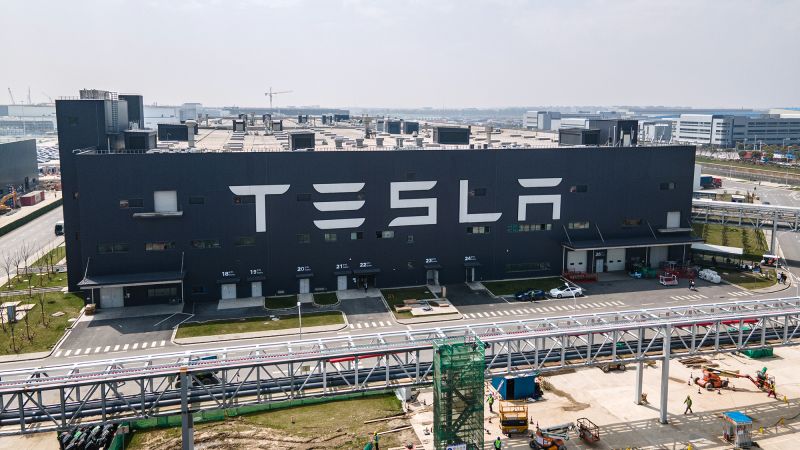Tesla is reportedly cutting more than 10% of its global staff of 140,000, a move attributed to the need for cost reductions and increasing productivity by CEO Elon Musk in an email to employees. This decision comes amidst growing competition and softer demand in the electric car sector, despite Tesla’s previous growth in overall headcount. The email did not mention the slowdown in demand for electric vehicles or Tesla sales, which have seen a year-over-year decline in the first three months of this year, its first such drop since the height of the pandemic. The drop in sales did not affect Tesla’s position as the leader in global EV sales, which it briefly lost to Chinese automaker BYD in the fourth quarter but recaptured in the first quarter.
Other automakers, such as General Motors and Ford, have also pulled back on their EV production due to softer-than-expected demand, although industrywide EV sales continue to grow, with US EV sales up 40% last year. Tesla, which opened factories in Germany and Texas in 2022 and announced plans for a plant in Mexico, has also seen a slow in headcount growth despite its previous increases in staffing levels in recent years.
Tesla has made staff cuts in the past, including a 7% cut in 2019 and trimming about 10% of salaried staff while hiring hourly staff in 2022. CEO Elon Musk confirmed the 2022 cuts in a public statement at that time, but has not publicly confirmed the latest round of cuts. Tesla, which does not have a public relations staff, did not respond to requests for comment on the report or confirm the email regarding the job cuts. Shares of Tesla, which were down 31% so far in the year, fell another 3% in early trading following the job cut reports.
Despite the challenges faced by Tesla and other automakers in the electric car sector, overall EV sales continue to grow, albeit at a slower rate than anticipated. The company’s decision to cut staff is aimed at reducing costs and increasing productivity, as well as adapting to softer demand in the market. Tesla’s recent decrease in sales and its efforts to manage costs through staff reductions reflect broader trends in the industry, where companies are adjusting their strategies in response to changing market conditions. The impact of these decisions on Tesla’s future performance and competitiveness in the electric car market remains to be seen, as the company continues to navigate challenges and opportunities in the evolving industry landscape.
Keep Reading
Subscribe to Updates
Get the latest creative news from FooBar about art, design and business.
© 2026 Globe Timeline. All Rights Reserved.













